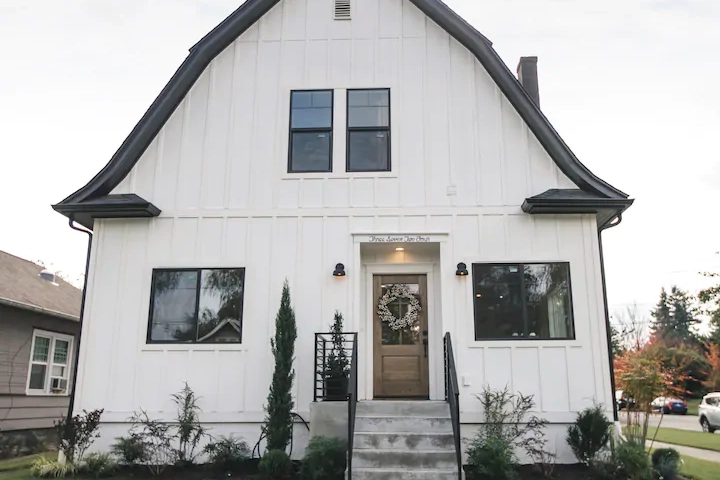The New Legislature Law for Short Term Rentals in Arizona State

As per statutes and Arizona law SB1350 (codified at A.R.S. 9-500.39), short-term rentals are legal. The state, county, or municipality may not take action to restrict short-term rentals but can set rules for the rental properties.
The term “short-term rental” in Arizona law refers to any individually or collectively owned single-family or one-to-four-family house or dwelling unit or any unit or group of units in a condominium, cooperative, or timeshare that is also a transient public lodging establishment or owner-occupied residential home offered for property taxation under section 42-12001.
Section 42-12001 of the Arizona law indicates that short-term and vacation rentals do not include units used for non-residential use, such as restaurants, retail stores, banquet space, or event centers.
How The Short-Term Rental Market Is Changing In Arizona
Arizona State has been keeping the ability to regulate vacation and short-term rentals in the hands of the state government for the longest time.
The regulating mandate was altered recently when Senate Bill 1168 made its way through the Legislature and was passed into law.
The enacted law enables local governments to control rental properties listed on websites like Airbnb and VRBO.
Local governments collect homeowner information to license the property and verify taxes are paid. They also institute a policy allowing a license to be revoked once a rental home is reported to authorities three times a year for violating rules like noise pollution.
The signed law doesn’t allow regulation of short-term rentals at the municipal level.
Arizona State has been keeping the ability to regulate vacation and short-term rentals in the hands of the state government for the longest time.
Arizona Supreme Court Issues New Ruling Protecting Them
The Supreme Court of Arizona issued a vital judgment that prevents private parties such as H.O.A.s from restricting short-term rentals in the state. Governor Doug Ducey signed a law for short-term rentals in the State of Arizona to authorize the effectiveness of A.R.S. 9-500.39 into law.
In the enactment of SB1350 in 2016, the Legislature passed additional law to protect owners’ legal rights to rent their properties.
Upon the bill’s signing into law, the Supreme Court, governor and the Legislature left open terms on whether private parties could restrict short-term rentals through deed restrictions and CC&Rs (covenants conditions and restrictions).
Governor Doug Ducey signed the Arizona state legislature’s new law, short-term rentals, to rein in short-term properties, which had become a nuisance in local communities. The bill requires short-term rental property owners to obtain licenses and permits.

Things To Keep In Mind Before You Rent
Rental periods for short-term rentals usually range from one night to twelve months. The Arizona State Legislature preempts local authorities, including Paradise valley, from regulating short-term rentals. Follow below are tips for when renting your property;
Responsible Party Registration – Paradise Valley
Before renting a property within Paradise Valley town, the owner shall provide the name and contact information. The owner shall also provide contact information for the owner’s designee, responsible for responding to complaints on time.
When obtaining licenses and permits, property owners are obligated to provide cities with the following details;
-
-
- Name, phone number, email address, and address of the owner/ agent
- Address of the short-term rental
- Proof of compliance with transaction privilege tax license
- Emergency contact information
- Acknowledgment letter to agree and comply with all applicable laws, regulations, and ordinances
- Fees payment not exceeding the actual cost of permit issuance ($250)
-
Unregister A Property
Rental units, including short-term and vacation rentals, shall be registered, updated, or unregistered per the new law. Short-term and vacation rentals may be unregistered or suspended upon violating stipulated rules.
Tax Licensing – Arizona Department Of Revenue
Paradise valley town derives tax from residential rental properties. Arizona department of revenue (ADOR) carries out tax licensing. Property owners must apply for a Transaction Privilege (Sales) Tax (T.P.T.) license from the revenue department.
Once the owners get the license number, they must post them on each online marketplace advertisement. Property owners must file tax returns showing gross receipts from the online marketplace. They should indicate deductions equal to the amount received from the online market.
Tax licensing varies from long-term rentals to short-term rentals. If you rent your property for days exceeding 30 consecutive days, the gross business receipts from the rental are subjected to a 1.65% tax deduction (code 045).
Varying tax codes may apply whenever you rent your property for less than 30 days. Transient lodging (bed) is subjected to 3.4% tax (code 144) whereas additional taxes on lodgings are subjected to 2.50% tax (code 044).
Go To AZTaxes.gov To Apply For A Transaction Privilege License
Instead of going to the Arizona Department of Revenue to get the transaction privilege license, you can alternatively visit the city’s website to get the sales and tax license.
Conclusion
Arizona State loosened short-term rentals regulations to allow local cities to establish rules on rental properties rented through popular home-sharing services. Arizona State is a prevalent high tourism hotspot. Thus, short-term rentals are a necessity within the city.

the safari farmhouse
$658 / night
3 bedrooms. • 4 Beds • 2 Baths
pheonix, az

the pink flamingo
$252 / night
3 bedrooms • 5 beds • 2 baths
phoenix, az


0 Comments